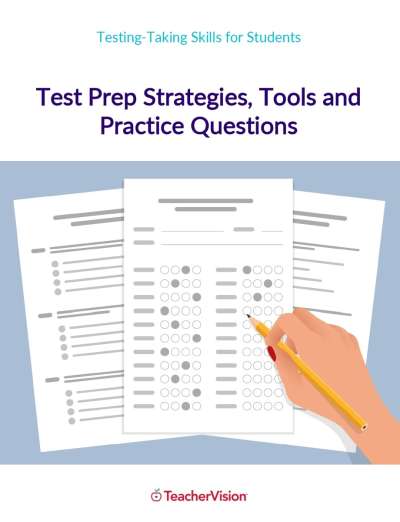Language Arts
Characterization
1. There are more than 250 characters, animal and human, in the Freddy books. List some of your favorites and discuss why you like them. Then, based on what you learn about them from your reading and discussion of the books, write a brief biography or autobiography of each character, imagining details as necessary.
2. There are a number of memorable villains in the Freddy books. List as many as you can and discuss what motivates them. How are they similar? How are they different? How many of them are animals? How many are humans? How does Freddy react to them? How does he deal with them?
3. Friendship is a recurring theme in the Freddy books. Who are Freddy's best friends? What does friendship mean to Freddy? What are some of the ways he helps his animal and human friends?
Humor
1. Walter R. Brooks uses a number of devices to bring humor to his books. One of these is character exaggeration. For example, Charles the rooster loves to talk and give speeches. Can you think of other characters that are exaggerated for humorous effect? (Another example: Mr. Groper, the hotel manager, has a weakness for big words or, as he puts it, "I'm habituated to this here sesquipedalianism.")
2. Mr. Camphor and his butler Bannister collect proverbs like "A rolling stone gathers no moss," argue about them, and test them. What are some of their other proverbs? (See especially Freddy and Mr. Camphor and Freddy Goes Camping.) Discuss their meanings. What are some ways you could test them?
3. Brooks often uses a device of humor called "incongruity," in which characters or events are paired in surprising and unlikely ways. For example, Freddy (a pig) rides a bicycle; Leo (a lion) enjoys going to the beauty parlor to get a permanent wave for his mane. Can you find other examples of incongruity? What makes them funny?
4. Brooks enjoys word play and his books are filled with funny names. Make a list of them and discuss why they're funny. He also enjoys making up humorous expressions: Leo, for example, says things like, "Well, dye my hair" and "Well, paint my toenails shell pink." Make a list of some of these, discuss why they're funny, and then create some of your own for individual characters.
Poetry
1. Freddy is an accomplished poet. Pretend you're Freddy and write a poem about how it feels to be a pig.
2. Some of Freddy's poems are parodies of famous poems and songs. Some examples are "The old hotel at Lakeside," a parody of Rudyard Kipling's "Road to Mandaly" (in Freddy Goes Camping) and "The Midnight Ride of Hank the Horse," a parody of Henry Wadsworth Longfellow's "The Midnight Ride of Paul Revere" (in Freddy and the Bean Home News). Read both the originals and the parodies, and discuss how Freddy has changed the original language and subject to suit his own poetic purposes.
Drama
1. Freddy writes a play in Freddy's Cousin Weedly. Stage a classroom production of this play, or write an original play about the Freddy characters. Or you might want to adapt scenes from one of your favorite books.
2. Make puppets of the Freddy characters and stage a puppet theater production.
Journalism
1. Freddy is a newspaper editor. Imagine that he has hired you as a reporter for The Bean Home News, and has asked you to write a news report of one of the incidents in the Freddy books (for example: the return of the animals from their Florida vacation; the trial of Jinx the cat in Freddy the Detective; the election fraud in Freddy the Politician).
2. Write an editorial for The Bean Home News (some possible subjects: the use of "ringers" by the Tushville football team (see Freddy Plays Football); why Centerboro residents should re-elect Sheriff Higgins (see Freddy and the Bean Home News); why people shouldn't eat meat (especially bacon and ham).
3. For the sports page, write an account of one of the football games from Freddy Plays Football, or one of the baseball games from Freddy and the Baseball Team from Mars.
Social Studies
1. Politics and government provide the subjects of several of the Freddy books, notably Freddy the Politician and Freddy and Simon the Dictator. In them, Brooks explores the differences between two forms of government, the republic and the dictatorship. How does he define these? Discuss the differences between the two forms of government in terms of what happens on the Bean Farm.
2. Freddy the Politician is often compared with George Orwell's Animal Farm. How do you think the two books are similar? How are they different? Which book do you like better and why?
3. Brooks enjoys poking fun at authority figures like politicians, military officers, wealthy people, and even school principals (Mr. Gridley in Freddy Plays Football). What techniques does he use to make readers laugh at these characters? Is he fair?
4. Many of the Freddy books involve travel. Draw a map of some of the animals' journeys. Or, based on what you have learned about the Bean Farm and the nearby village of Centerboro, draw a map of "Freddy country."
Science and Technology
1. The Freddy books take place on a farm. What does the reader learn from them about farm life? Is this life treated realistically?
2. Many of the most memorable characters in the Freddy books are animals. How true to their animal selves are they? How are they like humans? Does Brooks make them too human to be believable as animals?
3. The animals in the Freddy books talk to humans. Why can't animals in the real world talk? If the animals you know could talk, what do you think they would say? Write an imagined conversation with one of them.
4. How does Brooks feel about modern technology and inventions (think about Mr. Bean's attitude toward cars, for example). Make a list of Uncle Ben's inventions (see especially The Clockwork Twin, Freddy the Pilot, and Freddy and the Space Ship). How many of them are practical? How many even function? Make a working drawing of one of his inventions or build a model.
5. Uncle Ben builds a space ship in Freddy and the Space Ship and draws plans for a flying saucer in Freddy and the Flying Saucer Plans. How much do you think Brooks, writing in the 1950s, knew about interplanetary travel? What mistakes does he make?
6. If you were writing Freddy and the Men from Mars, what kind of Martians would you create? Would they resemble Brooks's Martians? Write an article about the planet Mars and our attempts to explore it.
ABOUT THE AUTHOR AND ILLUSTRATOR
About the Author
Walter R. Brooks was born on January 9, 1886, in Rome, New York. His father, William, was a music teacher, and his mother, Fanny, was the daughter of Samuel Barron Stevens, a prominent banker and two-term mayor of Rome. Walter attended the University of Rochester and then studied medicine at New York's Homeopathic Medical College, but left before graduating. He began a career in advertising, working for the American Red Cross as a publicist and copywriter. Moving to New York's Greenwich Village in 1919, he continued to work for the American Red Cross until 1927, the year when the first Freddy book, To and Again (later retitled Freddy Goes to Florida), was published. From 1927 to 1940 he worked as an editor, columnist, and reviewer for a number of different magazines, including The Outlook and Independent, The New Yorker, Fiction Parade, and Scribner's Commentator. He began writing short stories for adults in 1915, and published more than 180 of them over the next 40 years. Twenty-six of these stories featured a talking horse named "Ed"; they became the basis of the 1960s cult classic television series "Mr. Ed." Starting in the late 1930s, Walter began publishing a new Freddy book each year, the last appearing in 1958, the year he died at his home in Roxbury, New York. A lifelong book collector, Walter was also an antiquarian bookseller, a musician, and an artist. His hobby was learning new languages, and his personal library contained books in French, German, Italian, Spanish, and Swedish.
About the Illustrator
Kurt Wiese was born in the small town of Minden, Germany, in 1887. In 1927 he immigrated to the United States. Although he had no formal training in art, Wiese began a career as one of America's most productive and accomplished children's book illustrators, providing illustrations for more than 400 books (19 of which he also wrote). He received the Caldecott Honor in 1945 for You Can Write Chinese and in 1948 for Fish in the Air. He was awarded the Newbery Medal in 1932 for Young Fu of the Upper Yangtze and received Newbery Honors for Honk, the Moose in 1935 and Li Lun, Lad of Courage in 1948. He died in Frenchtown, New Jersey in 1974.
Further Reading
Brooks, Walter R. The Wit and Wisdom of Freddy and His Friends. The Overlook Press, 2000.
"Brooks, Walter R." In Something About the Author. Gale Research, 1951.
Cart, Michael. What's So Funny? Wit and Humor in American Children's Literature. HarperCollins, 1995.
Egoff, Sheila. Worlds Within: Children's Fantasy from the Middle Ages to Today. ALA Editions, 1988.
Hochschild, Adam. "Pig Tales." In The New York Times Book Review, 22 May 1994.
Kunitz, Stanley Jasspon, Editor. "Brooks, Walter R." In Junior Book of Authors. H. W. Wilson, 1951.
Internet Sites
http://www.freddythepig.org
"Freddy's Home Pen . . . uh, Page!" is the official site of the Friends of Freddy, the international Freddy fan club. It contains news, information about Walter R. Brooks and the Freddy books, pictures, poems, and links to other sites.
http://www.harley.com/freddy-the-pig
Harley Hahn, author of Harley Hahn's Guide to the Internet, offers miscellaneous information about Freddy, his friends, the Internet, and some original poetry that's almost as good as Freddy's!
http://www.rny.com/pubs/ss/features/freddy/freddy.html
A biography of Walter R. Brooks that appeared in his hometown newspaper, the Rome Sentinel.
Friends of Freddy
Founded in 1984, the Friends of Freddy is a nonprofit organization dedicated to the preservation and promotion of the writings of Walter R. Brooks and his literary alter ego, Freddy the Pig. The organization has grown from a handful of loyal fans into an international organization with more than 600 members. It holds a national conference every two years in New York State, at locations associated with the late Walter R. Brooks and the Freddy books. The organization endows the Walter R. Brooks Memorial Fund at the Roxbury, New York Library, and operates the Needy Schools Donation Fund. For further information, write to Friends of Freddy, P.O. Box 912, Greenbelt, MD 20768-0912 or visit the Friends' website at http://www.freddythepig.org
Title Listing
Paperbacks available from Puffin Books
(Hardcover editions published by Overlook Press)
Freddy Goes to Florida
0-14-131233-5 (PB)
0-87951-808-1 (HC)
Freddy Goes to the North Pole
0-14-230206-6 (PB)
1-58567-104-5 (HC)
Freddy the Detective
0-14-131234-3 (PB)
0-87951-809-X (HC)
Freddy the Politician
1-58567-080-4 (HC)
Freddy's Cousin Weedley
1-58567-309-9 (HC)
Freddy and the Ignormus
0-14-230043-8 (PB)
0-87951-882-0 (HC)
Freddy and the Perilous Adventure
1-58567-178-9 (HC)
Freddy and the Bean Home News
0-14-230088-8 (PB)
1-58567-081-2 (HC)
Freddy and Mr. Camphor
1-58567-027-8 (HC)
Freddy and the Popinjay
1-58567-134-7 (HC)
Freddy and the Pied Piper
1-58567-226-2 (HC)
Freddy the Magician
1-58567-310-2 (HC)
Freddy Goes Camping
1-58567-177-0 (HC)
Freddy Plays Football
0-14-230207-4 (PB)
1-58567-133-9 (HC)
Freddy the Cowboy
1-58567-225-4 (HC)
Freddy Rides Again
1-58567-268-8 (HC)
Freddy the Pilot
0-14-230044-6 (PB)
0-87951-941-X (HC)
Freddy and the Space Ship
0-14-230089-6 (PB)
1-58567-105-3 (HC)
The Collected Poems of Freddy the Pig
1-58567-136-3 (HC)
Freddy and the Men from Mars
1-58567-269-6 (HC)
Freddy and the Baseball Team from Mars
0-87951-942-8 (HC)
Freddy and the Flying Saucer Plans
0-87951-883-9 (HC)
Freddy and the Dragon
1-58567-026-X (HC)
The Wit & Wisdom of Freddy and His Friends
0-87951-725-5 (HC)
The Art of Freddy the Pig
1-58567-315-3 (HC)
The Adventures of Freddy the Pig
1-58567-346-3 (HC)













